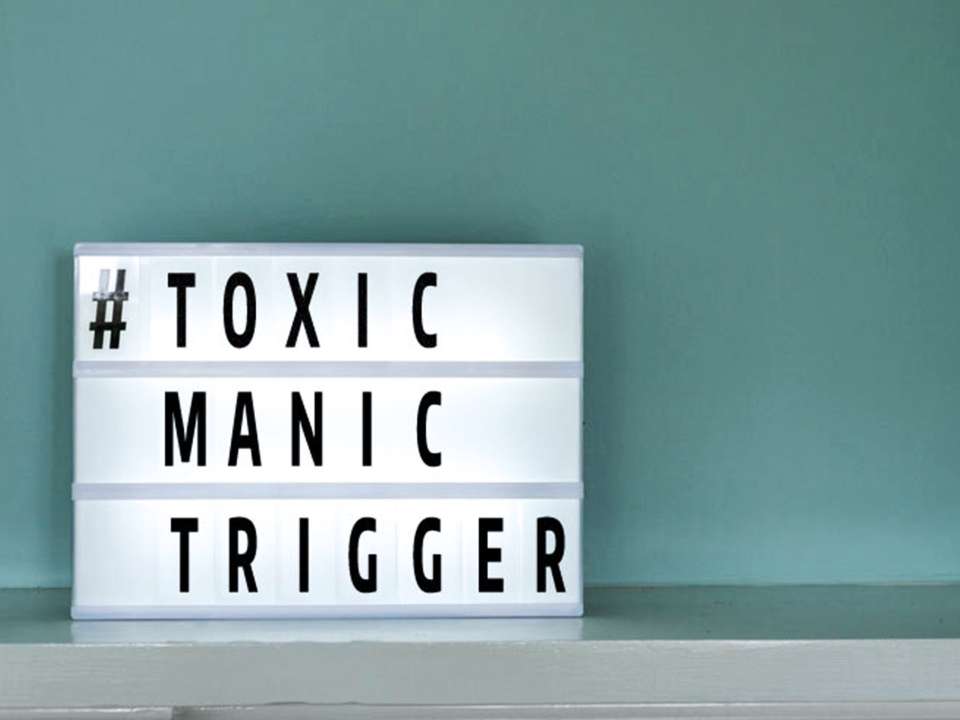
You’ve been feeling stressed. A lot. All of the time, in fact.
Your body is on high alert. Your head aches. And sleep? Well, forget it.
In a lot of cases of chronic stress, which the American Psychological Association defines as stress that persists over an extended period of time, it’s difficult to change the circumstances that are stressing you out. Maybe you are the caretaker for a loved one, a student in grad school or a parent struggling to pay the bills.
While you might not be able to change the situation, you can learn ways to be more resilient, reduce stress and find calm in trying times.
How does your body respond to stress?
When faced with a stressor, your brain and body respond in a whole host of ways that serve to keep you safe from the threat.
“Our underlying cognitive and emotional patterns serve a function to integrate really complex information about the world and help us move toward an action in response to that,” says Dr. Rebecca Hendrickson, an acting assistant professor in the University of Washington Department of Psychiatry and Behavioral Sciences.
In other words, stress alerts you that you need to act in order to stay safe and prepares your body to do so.
This is often called the fight-or-flight response. When exposed to a threat, your body preps you to fight or flee, then once the threat has passed, your body returns to a normal, calm state.
While this response system is helpful in cases like jumping out of the way of an oncoming car or that classic example of ancient humans running from a predator, it is less effective in situations where fighting or fleeing aren’t useful solutions. (Think trying to meet an upcoming deadline, cope with social anxiety or navigate the uncertainties of the pandemic.)
If you remain on high alert, stress can become chronic, which can cause harm to your body and well-being.
How is chronic stress different from other types of stress?
Chronic stress differs from other types of stress (or what scientists’ call acute stress) based on time. Acute stress occurs in the short term; chronic stress persists for longer durations.
For example, a tight deadline or a traffic jam may cause acute stress that goes away once you finish the project or get to your destination. However, if you sit in traffic every day or work a high-stress job, the consistent low-grade stress has the potential to become chronic stress.
Chronic stress causes problems because it prevents your body from relaxing and returning to its baseline, calm state.
When you undergo sustained, chronic stress, like that of the pandemic or caring for an ill loved one, the systems in your body that typically return you to your baseline don’t kick in. This means you remain in a heightened state of physiological arousal, which can lead to things like increased heart rate and high blood pressure.
How does chronic stress affect your body?
There is an array of different physical signs of stress, such as dry mouth, chest pain, loss of appetite and muscle tension. In fact, the American Psychological Association notes stress affects every system in your body.
To name a few, stress can affect digestion, leading to nausea, bloating, diarrhea and/or constipation; reproductive function, leading to irregular menstruation, decreased libido and pregnancy complications; cardiovascular processes, increasing the risk of hypertension, heart attack and stroke; and muscle tension, leading to tension headaches, along with other aches and pains.
In addition, studies have found people who live or work in stressful environments are more likely to have various diseases, like cardiovascular disease, depression and Crohn’s disease.
Why is it so hard to break the cycle of chronic stress?
We experience chronic stress when we are unable to either change the situation causing us stress or change our response to the stressor.
“The more we engage a fight-or-flight response, the more our thinking becomes rigid,” Hendrickson says.
Going back to the predator example, this rigid thinking helps keep us safe. Instead of stopping to contemplate whether the sound or shadow was a lion (tiger or bear), we come to a quick conclusion that spurs us to remove ourselves from harm’s way.
However, with many modern stressors, this rigid thinking becomes a hindrance because it prevents us from considering alternative solutions and coping mechanisms.
“We get stuck in these positive feedback loops where our response to what is going on makes things worse. We find ourselves acting in ways that perpetuate feelings of anxiety or stress,” Hendrickson says.
Chronic stress and anxiety are similar, but a key difference is that while chronic stress is often caused by an external stimulus, anxiety is triggered by your internal thoughts. In cases of chronic stress, you may start to ruminate on the ongoing stressor, which in turn causes anxiety and makes it harder to come up with solutions to the external problem.
And if you’ve experienced post-traumatic stress disorder (PTSD), your sensitivity to stressors may be increased, even if they are unrelated to your past trauma. Your body has a stronger response to perceived and actual threats, which can make you more susceptible to chronic stress.
How can you cope with chronic stress?
You might not be able or willing to change the circumstances that are causing you stress, but you can build resiliency and learn strategies that help reduce stress and promote well-being.
“Anything that interrupts those positive feedback loops and helps actively strengthen the breaks in for our fight-or-flight and stress response systems, helps decrease the negative effects of chronic stress,” Hendrickson says.
Practice mindfulness
Mindfulness helps to interrupt the anxious thoughts that keep our stress levels elevated. In essence, it’s all about focusing on something that is in the present moment, like your breath, the flavor of the food you’re eating or the way the wind feels when you’re on a walk.
To add mindfulness into your day, you can practice meditation and deep breathing, or try something as simple as listening to your favorite music.
Get outside
Spending time in nature boasts benefits like reduced anxiety and improved mood.
Try to carve out some time in your day to get some fresh air. Going to a park or hiking on the weekend is great, but even straightforward options like a walk on your lunchbreak will help give you a little more mental space.
Move your body
Exercise provides two-for-one benefits: It interrupts anxiousness in the moment and helps strengthen your body’s ability to bring you back to a calm state when faced with stressors in the future.
The best way to incorporate movement into your routine is to find something you enjoy doing, whether it’s a walk around the neighborhood, a high-intensity sweat sesh or a dance party in the kitchen.
Listen to your emotions
Noticing your feelings and getting curious about what is causing them allows you to move into more flexible thinking. Once you’ve determined what real or perceived risk you are facing, you are able to consider how you would like to respond and what next steps are best.
For example, after thinking more about your stress around an upcoming deadline, you may learn it stems from a fear that your work isn’t good enough or instead it might be a case where your job is truly on the line.
The most helpful course of action might be finding ways to cope with self-doubt, or it could be determining how to achieve job security. Either way, listening to your emotions will help you think more clearly and clarify what you can do to relieve the stress.
Set constructive worry time
Raise your hand if you’ve ever laid in bed mulling over every anxiety from the day. (Yep, same here.)
“We are not good at coming up with insightful, creative solutions at 1 a.m. when our mind is racing and exhausted,” Hendrickson says.
Cope with these intrusive thoughts by setting aside time each day to worry. At that time, write down everything that is concerning you, then go through the list to see if there is something you can or should do. This might mean making sure to do laundry before an upcoming event or it might be calling a friend because you aren’t sure how to cope with a situation.
This will not only help you work through specific problems, but it will also keep you from late-night or endless worrying. If you notice stressful thoughts creeping in throughout the day or late at night, remind yourself you have designated time to address these thoughts and that you will get to them then.
Seek additional support
If you are trying to reduce stress on your own but are still feeling overwhelmed, it’s important to reach out for help.
“There are things we can each do to help protect ourselves and promote resilience, but there’s also a point where it’s most useful to find someone to get additional support from, be it a family member, neighbor, friend or mental health professional,” Hendrickson says.
Talking to another person can provide comfort, help you feel safe and give you an outside perspective.
The bottom line
You don’t have to live with chronic stress and the physical and emotional effects it brings. Even if your situation is complicated, there are ways to help calm your body down and reduce the stress you’re feeling.
With some effort and support, you can break out of a pattern of chronic stress.

 Healthy ideas for your inbox
Healthy ideas for your inbox





